5 Questions Expats Should Ask Before Choosing an Offshore Custodian
By Chad Creveling, CFA, & Peggy Creveling, CFA
When it comes to building an investment portfolio, one of the first decisions many expats need to make is selecting an appropriate global custodian. A custodian is a financial institution such as a brokerage, asset management company, or bank where you can hold your investment assets and buy and sell various global investment products. It may also provide various banking facilities, such as savings accounts, checking facilities, debit cards, and other services. There are a number of factors to consider when selecting an offshore custodian, as well as numerous custodians to choose from. No one financial institution is a perfect fit for all expatriates. To help you narrow the choices and find the best custodian for your unique circumstances, we’ve put together the following list of considerations:
1. How strong is the regulatory oversight of the custodian?
All custodians may claim to be "well-regulated," but do not assume that you will have the same protections as you do in your home country. Different offshore jurisdictions offer varying levels of protection to the expat financial consumer and enforcement of existing rules can be unreliable. There's also a fair amount of outright fraud in the offshore world. Look up and contact the custodian's regulating authority. Ask the regulator if the prospective custodian is actually regulated by them. Find out if there have been any complaints filed against the custodian, as well as the nature of those complaints and how they were resolved. Due diligence in this area can really pay off. Above all, do not deal with an institution that turns out not to be regulated anywhere.
Note: The advisor who sells you a financial product held at a custodian in a particular jurisdiction may not be regulated by the same regulating authority as the custodian or may not be regulated at all. Both the advisor and the custodian that conducts the transaction and holds the investment asset need to be regulated. Some advisors misleadingly imply they are regulated, when in fact they mean the custodian is regulated. This matters, because if the advisor provides you with misleading or negligent advice, the custodian's regulator will be of no help to you.
2. What happens to your assets if the offshore bank or broker goes bust?
This is another important question for you to ask the respective custodian. Generally, investment assets such as stocks and mutual funds held in an offshore brokerage account are juristic entities separate from the custodian. If the custodian goes bankrupt, your investment assets should not be affected, although it may take time and effort to claim your assets. Remember that while you are protected from bankruptcy of the custodian, you are not insured against investment loss.
Cash assets held at an offshore broker or bank account are liabilities of the custodian and you'll want to find out how cash deposits are guaranteed, who guarantees them, and up to what amount. Be wary of any non-U.S. custodian claiming to be protected by U.S. SIPC (Securities Investor Protection Corporation) brokerage insurance―such a custodian is likely a fraud.
Tip: Resist the urge to focus on above-market deposit rates for a given currency―a bank or financial product may be offering unsustainably high rates because it's taking on too much risk in its lending practices or financial structure.
3. What products does the custodian offer and what do they cost?
Look for custodians that offer a full range of global investment products including cash management products, mutual funds, and exchange-traded funds (ETFs). Compare costs to include custodian fees, transaction fees, mutual fund fees, transfer fees, and others.
Those who are happy to manage their own investments or who want to work with a truly independent advisor can look for custodians that provide access to index (tracker) funds or ETFs.
The savings compared to fee-laden actively managed mutual funds or investment-linked insurance schemes are substantial. See our earlier blog post on this topic, "Five Things to Consider Before Buying Offshore Investment Schemes."
4. How transparent and accessible will your account be?
Given the mobile life of the typical expat, at a minimum you should be able to access an offshore account online at any time, both to place trades and to check account balances. The custodian should also provide you with monthly account statements, at least on request. Complete, detailed information on purchases, distributions, and fees and commissions should be available either online, in statements, or both. The custodian should also operate a customer call center with hours suitable to your location and in your language should you have any problems or questions.
You should also check on the procedures, cost, and time it takes to transfer funds from your offshore custodian to another bank account. This goes for redeeming funds as well. There should be no restrictions or lock-in periods and you should be able to redeem funds within a few days at most.
Note: It's important to be aware that direct transfers between banks and custodians in different countries may not always be possible. For example, some custodians in well-regulated countries may not accept transfers from banks in countries that have not signed legislation to prevent money laundering or which are believed to have lax standards in this area.
5. How will your investments be taxed?
For many expats, avoiding home country taxes is the primary reason for considering a global custodian, as well as having access to banking and investment facilities designed to support an international lifestyle. In choosing a global custodian, you'll need to consider both the tax regime of the jurisdiction where the custodian is located and your country of residence. Research how capital gains, dividends, and interest will be taxed by your potential custodian's jurisdiction (including withholding taxes), as well as by your country of residence, and potentially your home country (particularly if you're an American).
Length of Residency: To deal with an increasingly global workforce, many countries now have different income tax rules for expats who are temporary residents and those who stay longer. Many countries offer a period of time where the offshore investment income of expats is not taxed, although a special trust may need to be set up for this purpose. Some countries may not tax the offshore income of foreign residents at all. It pays to understand your specific circumstances, as there are many permutations possible between the tax systems of your country of residence, your home country, and the offshore jurisdiction. Talk to your tax or financial advisor to ensure you understand your specific situation.
For U.S. citizens: There's no law prohibiting U.S. citizens from holding assets at an offshore custodian. The United States taxes its citizens on global income, however, so there's generally no tax advantage for expat Americans holding their assets at offshore accounts.
In practice, the IRS’s increased focus on undeclared offshore accounts and the regulatory burden placed on offshore custodians to comply with the U.S. tax code has prompted many offshore financial institutions to shut their doors to American clients. In addition, the increased reporting requirements, punitive tax rates assessed on foreign domiciled assets, and penalties for non-compliance generally preclude American expats from benefitting from the use of offshore custodians.
For most, a U.S. custodian will provide greater product range, lower fees, tighter regulation, fewer reporting requirements, and a lower tax burden. While many U.S. custodians are not currently opening new accounts for U.S. citizens who live abroad, firms such as Charles Schwab and Interactive Brokers are two that are still welcoming most U.S. expat customers.
Tip: Most expats focus on income tax considerations, but don't forget to research the estate or inheritance taxes that may apply to your situation. You should also be aware that U.S. assets (including U.S. stocks) owned in U.S. brokerage accounts―even if they're in offshore locations like Hong Kong―may be subject to U.S. estate tax rules for Non-Resident Aliens (NRAs). The tax calculation rules are complex, but the end result is that only up to $60,000 of U.S. assets can be shielded from U.S. estate tax. To receive higher deductions, a U.S. estate tax return declaring worldwide assets to the IRS would need to be filed.
In Summary: There are many factors that expats should consider when choosing an appropriate offshore custodian to support their investment and banking needs. We hope this list helps you narrow your choices on your path to achieving financial security.
This article is a revised and updated version of one that appeared previously on www.crevelingandcreveling.com.
About Creveling & Creveling Private Wealth Advisory
Creveling & Creveling is a private wealth advisory firm specializing in helping expatriates living in Thailand and throughout Southeast Asia build and preserve their wealth. The firm is a Registered Investment Adviser with the U.S. SEC and is licensed and regulated by the Thai SEC. Through a unique, integrated consulting approach, Creveling & Creveling is dedicated to helping clients cut through the financial intricacies of expat life, make better decisions with their money, and take the steps necessary to provide a more secure future.
Copyright © 2022 Creveling & Creveling Private Wealth Advisory, All rights reserved. The articles and writings are not recommendations or solicitations, and guest articles express the opinion of the author; which may or may not reflect the views of Creveling & Creveling.

